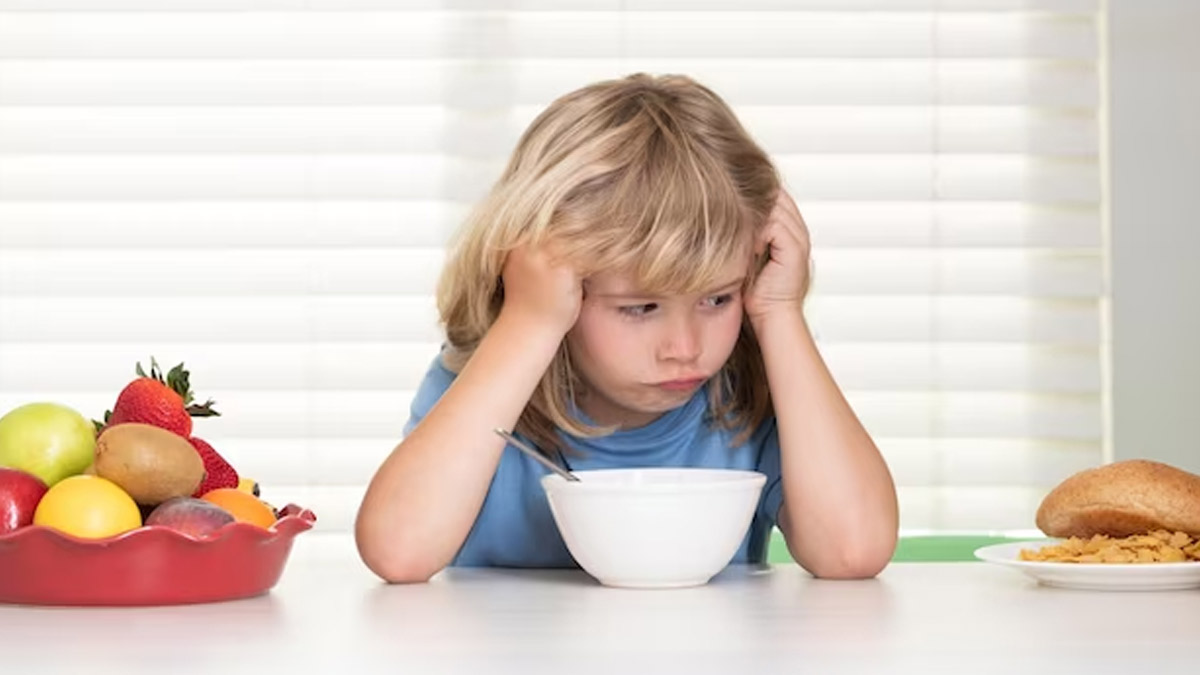
Nutritional deficiencies can have a significant impact on a child's growth and development. Adequate nutrition is crucial during childhood, as it supports proper growth, brain development, and overall health. To know more about it, we spoke to Anitha Selvam, MSc Clinical Dietician and Nutritionist, Apollo Cradle and Children’s Hospital, Chennai.
Nutritional Deficiencies And Children's Health
"Nutritional deficiencies can impact a child's growth potential if there is insufficient intake of essential nutrients, such as protein, calcium, iron, and vitamins that can hamper their growth," said Selvam. She added that protein deficiency can hinder muscle and tissue development, while inadequate calcium intake may compromise bone strength. According to the World Health Organization (WHO), undernutrition is responsible for approximately 45% of deaths in children under the age of five.
Preventing Nutritional Deficiencies in Children
Diverse and Balanced Diet

"To ensure optimal growth, it is crucial to provide a balanced diet that is rich in diverse nutrients," she said. This includes a variety of food groups, such as fruits, vegetables, whole grains, lean proteins, and dairy products, where the child consumes all the required nutrients.
Also Read: What is the Importance of a Balanced Diet and How It Can Enhance our Health
Promote Regular Meals and Snacks
"Encouraging regular eating patterns by providing three balanced meals and two to three nutritious snacks throughout the day, helps in maintaining consistent nutrient intake," she added.
Ensure Calcium and Iron-Rich Foods
"Calcium is essential for bone health. Thus, incorporating dairy products like milk, cheese, and yoghurt into their diet is essential," she recommended. "Providing iron-rich food like lean meats, beans, fortified cereals, and leafy green vegetables with their meals will support red blood cell production and prevents anaemia," she added.
Consider Supplementation When Necessary
Selvam said that in some cases, doctors may suggest giving your child dietary supplements to help with deficiencies. "These supplements can include multivitamins, which have important vitamins and minerals that are good for the body. They can be helpful if your child doesn't eat a wide variety of foods, has a small appetite, or needs specific nutrients," she added.
She said that multivitamins often contain Vitamin D, which is important for strong bones and a strong immune system. But before giving any supplements to your child, it's always best to talk to a doctor and get their advice. They will know what's best for your child's specific needs.
Also Read: 5 Things You Should Know Before Taking Supplements
Water Consumption
"Consumption of water is very crucial for children’s growth and development," said Selvam. The expert suggested the following guideline for the intake of water.
"When your child is between 6-12 months old, you can start giving them a little bit of water with their meals. It's best to use a cup instead of a bottle. About 4-8 ounces of water each day is usually enough for them," suggested the expert.

"Between 1-3 years old, your child will need about 1-4 cups of water per day. This can help keep them hydrated and healthy," said Selvam. She added that as they grow older, from 4-8 years old, they should try to drink about 5-8 cups of water every day. Remember, this can change depending on how active they are, the weather, and what their body needs."
"Once your child reaches 9 years old and older, their bodies are growing even more, so they need more water. Around this age, it's important for them to drink about 8-10 cups of water per day to stay hydrated and feel good," she suggested.
"However, this can vary depending on factors, such as activity level and climate. Ensuring that the child drinks an adequate amount of water throughout the day to maintain hydration which may support the child’s overall health," said Selvam.
[Disclaimer: Consult a doctor or a dietician that can provide personalised dietary guidance that will be beneficial for the overall well-being of the child.]
Image Credits: freepik







